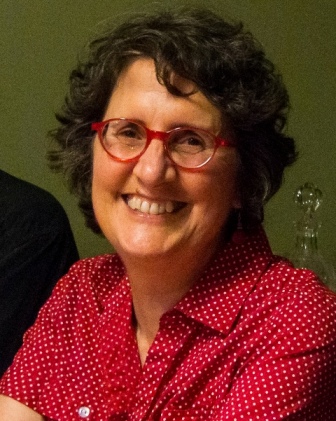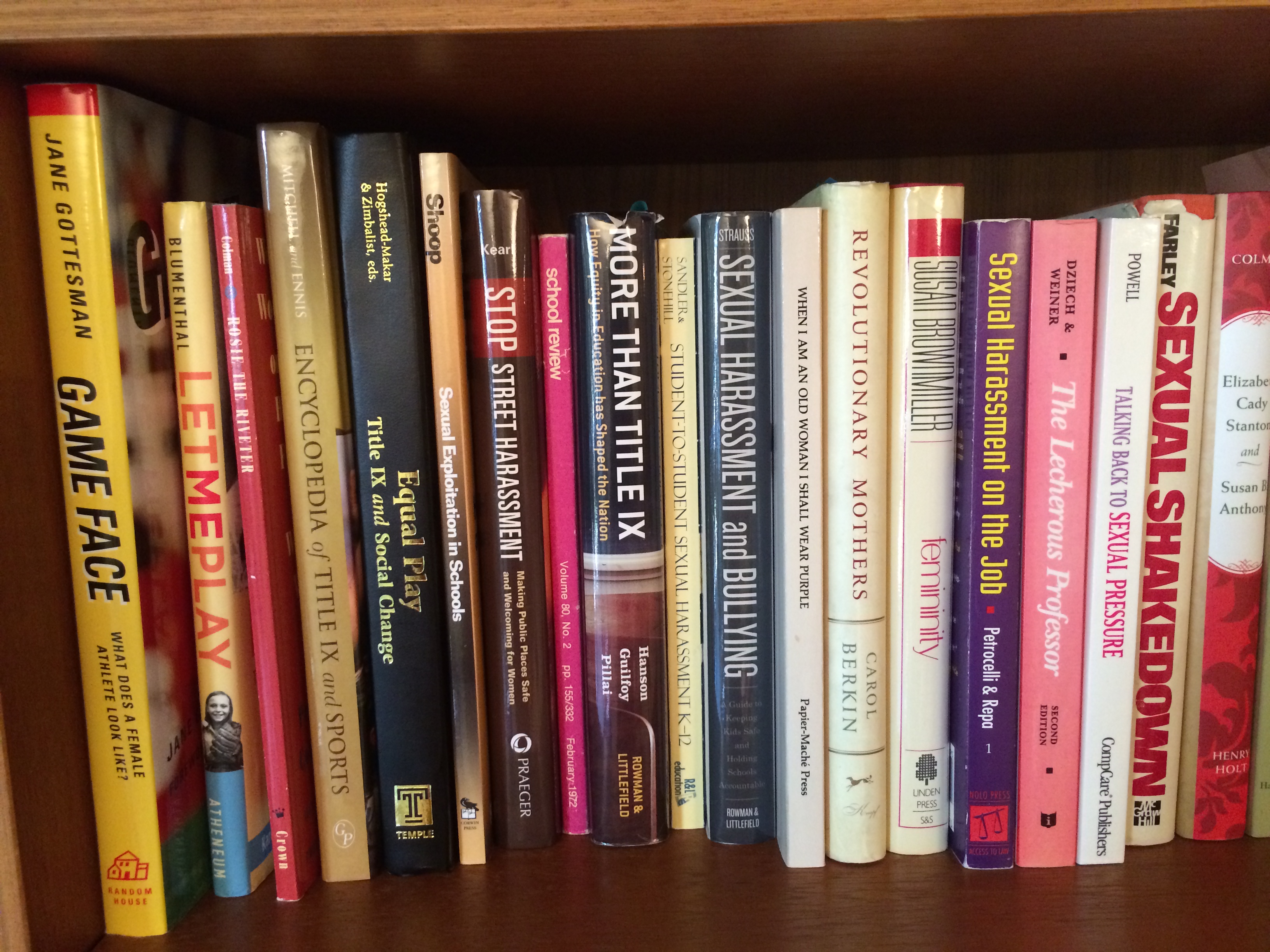Lobbyists, Congressional staff influenced Title IX
[Videos feature Judy Norrell, former lobbyist for the League of Women Voters, and Barbara Dixon, former staff person for Sen. Birch Bayh.]
Title IX wasn’t just an act of Congress, nor did it come simply from the demands of women’s activist organizations. There’s plenty of overlap between insiders and outsiders in Washington, D.C. and varying degrees of insider- or outsider-ness depending on the person and the situation. Women were small in number compared with men working in the nation’s capitol in the 1970s, which made it easier, in some ways, to find each other and collaborate as both insiders and outsiders.
Female Congressional staffers acted as lookouts for legislation hostile to Title IX. Executive branch employees sought guidance behind the scenes from women’s groups, who sought access to decision-makers and the White House. Government officials advised/lobbied the women’s coalitions as much as the women’s groups advised/lobbied government officials. It was a new, heady era of female influence in Washington and many of the relationships they built have lasted a lifetime.
It wasn’t all sweetness and light, though. Judy Norrell (in the first video), who represented the League of Women Voters, remembers an exceptional, ego-free camaraderie among the “outsider” advocates. But sometimes those outsiders drove their “insider” allies crazy in frustration, says Barbara Dixon (second video), former staffer for Sen. Birch Bayh (D-IN).
Julia (Judy) J. Norrell practically grew up in the halls of Congress. First her father and then her mother served in the House of Representatives for the State of Arkansas. “I was a Congressional child. I rode a tricycle around the halls and the subways,” she said. It was a much less partisan era compared with today. Air travel was less common, so Congresspeople tended to live in Washington and see each other at their children’s schools, in churches or synagogues, and at social events. Norrell tapped her connections in a long career as a lobbyist.
The legislative director for the League of Women Voters in the 1970s, she and League volunteers were part of the National Coalition for Women and Girls in Education lobbying to protect and enforce Title IX, among other goals. “We were a straggly little group not given, I think, much of a chance to begin with,” she recalled. “We did give it a good shot. We were successful, much to the amazement of everybody, I think, including, at times, ourselves.”
Football coaches lobbied, too, sometimes sending busloads of Catholic nuns to try to convince legislators that Title IX was a threat to female purity, social order, and Notre Dame football (not necessarily in that order). Norrell tried to educate the mostly male legislators by making the personal political, along with giving them an honest appraisal of what Title IX would or would not do in their state or district. “We weren’t a bit above lobbying the wives of members of Congress,” she said. Or, “You had to have an ex-teacher who taught Billy Who-Who in kindergarten go call and say, `This really matters to me.'”
Norrell had a personal incentive to make sure Title IX covered equity in athletics. As a youth during stints back home in Monticello, Ark., she played baseball and softball on a Baptist Church team until they kicked her off for being a girl. She switched to the Methodist Church to play on their team. Later she started playing on a semi-pro softball team sponsored by the local hardware store, but the notoriety of a Congressman’s daughter being on the team was too much for Norrell’s parents, who moved her to Washington full-time.
These kinds of experiences made her a women’s rights supporter because “…if you tell me I can’t do something” based on discrimination, “I don’t tolerate that well,” she said.
Norrell is the kind of advocate that Barbara Dixon appreciated as a legislative staffer for Sen. Birch Bayh. She felt that people like Norrell, Judy Lichtman of the Women’s Legal Defense Fund, and Marcia Greenberger of the Women’s Rights Project (which became the National Women’s Law Center) understood the political process in Washington, while some women’s groups — the National Organization for Women, in particular — were much more “naive.”
Trying to shift a likely close vote on an amendment related to the Equal Rights Amendment, for example, Dixon helped convince the White House to send Sen. Tom Eagleton (D-MO) — a devout Catholic but a foe on this particular issue — to attend the Pope’s funeral in Italy, thus removing one unwanted vote. One of the women’s groups couldn’t help gloating about this to the press.
“Thank god, we were still able to defeat the amendment, but Sen. Eagleton never spoke to me again after that, he was so angry, and I don’t blame him. The White House was furious,” Dixon said.
Insiders tried to educate the outsiders, who pushed the envelope for the insiders. One crossover was Arvonne Fraser, wife of Rep. Donald Fraser (D-MN), who started a “Nameless Sisterhood” of political wives and staffers who gathered in discussion salons — a radical move for women in Washington at the time. When Bernice Sandler and the Women’s Equity Action League (WEAL) started filing federal complaints about sex discrimination in education in 1970, Fraser invited her to speak to the Sisterhood. Sandler admitted being politically naive, but she knew the field of education, one of Fraser’s passions. Together, with others, they founded WEAL’s D.C. chapter and Fraser later became the national WEAL president, tapping the “naive” energy of the activists and guiding them with her political expertise. “We essentially created a telephone Rolodex kind of network,” Fraser said.
Ellen Hoffman, a staff member for Sen. Walter Mondale (D-MN) thinks it probably was Fraser who asked if Sen. Mondale could sponsor Senate legislation that had been introduced in the House — the Women’s Educational Equity Act (WEEA). “Arvonne and I worked back and forth across the Congress,” Hoffman said.
Hoffman also helped Mondale champion a package of amendments to an education bill that established sex equity in vocational schools and programs — the Women’s Vocational Education Amendments — that women’s advocates favored.
For women’s groups, “I was probably the point person in the Senate,” Hoffman said. “They could always talk to me.” And the communication flowed both ways. Hoffman happened to be on the Senate floor one day in 1974, though Mondale was out, when Sen. John Tower (R-TX) introduced a bill that would have exempted revenue-producing sports (such as football and basketball) from compliance with Title IX.
“I heard what he said and thought,` Oh, my god.'” She immediately went out to alert women’s groups. Hoffman doesn’t remember who she called — it could have been Fraser, or Sandler, or Margaret Dunkle — but word spread and through quick, concerted action they outmaneuvered Tower legislatively.
The “Rolodex network” of women’s advocates and the insider/outsider alliances for sex equity in the 1970s helped make women a force to be reckoned with in national politics, and helped preserve Title IX for future generations.







Great perspectives Sherry. Excellent content and loved the editing and of course music by Red Bennett.
I think I would be a good friend to this person who def has good idea about how to go about it – sounds like yesterday but still not history and I want to read more – well done Sherry
Delighted to have this history. Will be important for the current and future generations. Women’s history is crucial and so neglected. This is a great contribution.